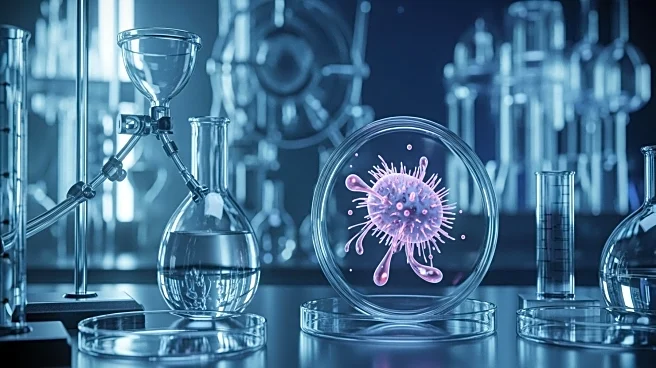What's Happening?
John Glass, a synthetic biologist, has raised concerns about the potential dangers of developing 'mirror life'—synthetic organisms with DNA structures that are the mirror image of all known life forms. These organisms could pose significant risks to existing life due to their unique homochirality, which could lead to immune system deficiencies and unchecked ecological impacts. Glass, along with other scientists, advocates for preemptive legislation to prevent the creation of such lifeforms, citing the possibility of catastrophic consequences if these organisms prove pathogenic. The urgency of this issue was highlighted at a recent conference at the Institut Pasteur in Paris, where over 150 scientists and ethicists discussed the risks involved.
Why It's Important?
The development of mirror lifeforms could have profound implications for global ecosystems and human health. If these synthetic organisms become pathogenic, they could lead to widespread immune deficiencies, making humans and other life forms vulnerable to infections. Additionally, mirror bacteria could disrupt ecological balances by resisting natural predators, potentially leading to irreversible environmental damage. While the technology is still years away, the scientific community is urging caution and legislative action to prevent potential disasters. The debate also touches on the balance between advancing medical research and safeguarding against existential threats.
What's Next?
The scientific community is likely to continue advocating for strict regulations on the development of mirror lifeforms. Discussions may focus on creating precise guidelines that allow beneficial research in synthetic biology while preventing the creation of potentially harmful organisms. The Alfred P Sloan Foundation has already stated it will not support efforts to create mirror organisms, indicating a growing consensus against their development. Future conferences and reports may further explore the ethical and practical dimensions of this issue, aiming to establish a framework for responsible scientific advancement.
Beyond the Headlines
The ethical implications of creating mirror lifeforms are significant, as they challenge existing norms about the manipulation of life. The potential for these organisms to resist immune responses raises questions about the limits of human intervention in natural processes. Moreover, the promise of medical advancements through mirror proteins must be weighed against the risks of ecological and health disasters. This debate highlights the need for a nuanced approach to synthetic biology, balancing innovation with precaution.











